| |
| Leon's English
Literature Review |
For ELA / ESL / EFL Students
& Parents
Homeschoolers especially Welcome!
Foreword
|
Dear
Bibliophiles and Literature Lovers:
Reading can be an interesting way to learn a language, (even if it is
your first language). And so, I hereby present Leon's Literature Review, for any and all who
want to read. NOTE: This page is mostly for those who've
already learned to read; so for children from third grade to high
school. If you have a child still learning to read, I suggest my
"Reading Skills" page, which has lots of resources for those
still learning to read (linked at the bottom of this page).
Sincerely,
Leon
Webmaster
|
I'll try a genre-based
approach. Here are all the genres of literature that I can think of:
I. FICTION
A. NARRATIVES:
1.
Historical fiction:
| A historical fiction story is set in a real historical place and some of the events actually occurred and
some of the characters may have actually existed, but the main plot of the story
surely did not occur. |
Examples that I've read:
a. *Simplified Classics!*
Reading
Level: 5th-6th grade (give or take)
My Review
As a child in the 5th or 6th grade, I thoroughly
enjoyed all of the books below.
NOTE: I read the simplified
versions as a child. I do not know if the original versions would
be as interesting to read. But, the simplified versions were
fascinating to me as a child.
NOTE2: I read the Great Illustrated Classics. |
- David Copperfield (simplified version)
- Oliver Twist (simplified version)
- Mutiny on Board the M.S. Bounty (simplified version)
- Moby Dick (simplified version)
- Treasure Island (simplified version)
- Tom Sawyer (simplified version)
- Huckleberry Finn (simplified version)
- Robinson Crusoe (simplified version)
- Around the World in 80 Days (simplified version
- and many more |
|
I get zero money for this ad. I'm just placing
it here because I absolutely loved reading the Great Illustrated
Classics when I was a child. I would spend my own money to buy
them and read them. I'd stay up late under the covers with a
flashlight, because I couldn't put them down. Click on the link
below to see all the titles (and shop).
BTW: You can put your link on my webpage /
website, if it is educational, and I like it.
Learn how to put your link on my website, here.
|
b. Wilson Rawl's Where The Red Fern Grows
Reading
Level: 6th-8th grade (give or take)
My Review
| Where the Red Fern Grows is a
popular book with young teenagers. I read it in my teenage years
and was deeply touched by the relationship between a boy and his two
dogs. I would highly recommend this book to all dog-lovers around
the world. I was deeply touched by the book as a young reader, and
I didn't even have a dog! |
c. Rodman Philbrick's FREAK the MIGHTY
Reading Level:
7th-High School
My Review
| Freak the Mighty (and I'm not going to tell all about how Freak the
Mighty was born, because I don't want to spoil it for you) was in eighth
grade. The story was set in the early 80s when the first desktop
computers came out. Fascinating read! It was written in the
first person, so it reads like a true story, but it is fictional.
From my research, I found out that it was inspired by a true experience
from the author's life, though, making it close to being based upon a
true story. It is a heartwarming story full of what I call
"real-life" crap that we all have to deal with in one way or
another, making the story very relatable to the reader. It is
inspiring. It will make you laugh and it will make you cry.
I highly recommend it. |
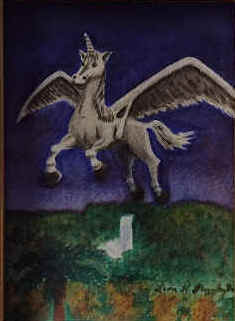
Unicorned Pegasus
Watercolor
By Leon of Leon's Planet
2. Fantasy:
(My personal favorite genre)
| A fantasy story may be set
in a fictional place, and quite generally the characters are beings that do
not exist in real life and/or talking animals. A sub-category of
fantasy might include fairy tales (or at least most of them). The Harry
Potter books would be in this category, but I haven't read any, and do NOT plan
to. That's not to say, "Don't read Harry Potter." No, no,
no. Whatever it takes to get your child (or you) to read, then do
it! But, there are so many other fantasy stories out there besides
Harry Potter (and better than Harry Potter, too!). |
Examples that I've read (aside from fairy tales):
a. Tolkien's The Hobbit
Reading
Level: High School fantasy-lovers
My Review
| This was either the first or second novel
in the genre of fantasy that I had ever read. It was so
magnificent in my eyes as to inspire me to read many more of the
genre. I have since come to understand that Tolkien's whole Lord
of the Rings trilogy is based upon Nordic lore. Wow! To
think that at one time there were elves and dwarves and giants living in
Midgard. So, maybe we should classify it as historical fiction
rather than fantasy? At one time I had planned to read the whole
trilogy but never had the opportunity.
I highly recommend this book.
However, my middle school students say that the rest of the series is
"dry" and uninteresting. |
b. Madeleine L'Engle's A Wrinkle in Time
Reading
Level: 4th-6th Grade
My Review
| A Wrinkle in Time was the other book, one
of two, that instigated my love of fantasy. L'Engle's book
presents insights into the evils of egalitarianism that even a child
could understand.
Unlike in L'Engle's book, we do not have
to "tesseract" through space to find societies like the one in
A Wrinkle in Time, or to find societies that strive to become
like the one in the book.
I highly recommend this
book. |
c. C.S. Lewis's The Chronicles of Narnia
Reading
Level: 4th-6th Grade
My Review
| I've read the first book of the series:
The
Lion, The Witch, and the Wardrobe. The movie that has just
come out stays remarkably true to the story in the book. C.S.
Lewis was a writer who thrust Christian themes into almost all of his
writings. The Lion is clearly a Christ archetype.
While the plot was not unique, I did
find the medium of the plot, namely fantasy, very appealing. For
any one who loves fantasy (as I do), I would recommend this book.
Note: You don't have to be a Christian to read this book. It
is fun and exciting no matter what your believe system is! |
d. Natalie Babbitt's Tuck Everlasting
Reading Level: 5th-8th
grade
My Review
| Winnie goes into the forest against her mother's wishes and she
discovers a family.... a family with a secret... the secret of
living forever. Winnie is between 10 and 12 years old. The
story is set in 1881 in the Adirondack Mountains. Very interesting
story. I couldn't stop reading it until I was through; and then I
read it to my fifth-graders. |

3. Science fiction (Sci-Fi):
| Science fiction is probably a
subcategory of Fantasy (because it's not real); but I place it in its
own category, because it could become real... some day. Science Fiction
is possible events/stories that could have happened and may have happened, but are
generally assumed not to have happened; OR, that could happen now or in
the future. |
Examples that I have read:
a. Douglas Adams's Hitchhiker's Guide to the Galaxy
Reading
Level: High school or above
Content is meant for: Adults (and I only say that
because I don't think that self-centered high-schoolers can really appreciate
the humor, which deals with real-life themes, such as inane politics, silly
gov't bureacracy, and in later books of the series, he even deals with
religion) It is VERY satirical. But, if your high-school student is
studying satire in school, this is a VERY good series to read.
My Review
| Never had I encountered such a delightful
author as I found in Douglas Adams. He does his research and knows
his stuff. He combines science, satire, linguistics and fantasy
into one; And, he does it in such a way that it immediately grabs the
reader and keeps the reader wanting to know what will happen next.
After I was done with the first book of the
series, I immediately went out and bought the other four. I read
them all as fast as I could in succession.
In the last book, Mr. Adams had to kill
off everyone, or the series may never have ended, because people would
have clamored for more. Sorry. I ruined the ending for you.
For any one who has a sense of humor,
appreciates satire (both political and religious), and a good laugh now
and then, I would very highly recommend all five books of the series. |
4. Contemporary fiction:
make-believe stories set in modern times.
Examples that I have read:
A.
THE NAME OF THIS BOOK IS SECRET (by Pseudonymous Bosch)
Reading Level: 4th -
8th grade
(but I read it as an adult and absolutely fell in love with this
book!)
My Review
| The book seems to be set in a time contemporary to its publish
date: 2007. Our two 11-year-old protagonists embark on an
adventure of mystery and intrigue. But, what I REALLY like
is the way the book was written. After the title page, you see
this page (below). |
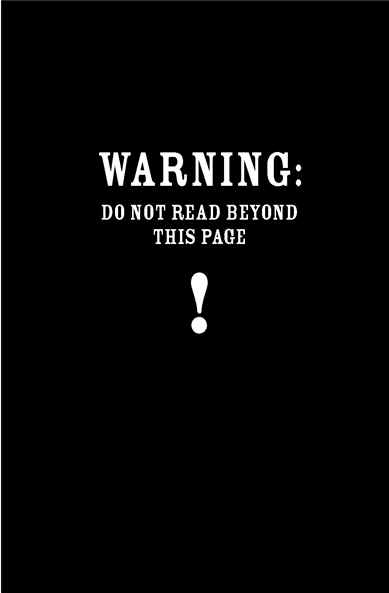
My Review Continues
| Of course, curiosity gets the best of you and you just have to turn
the page to see why you shouldn't read beyond that page. The whole
book is like that. It grabs your attention and keeps it and you
can't put it down, because you just have to know what happens
next. While the general writing and size of font is consistent of
that for a 4th-grader, it contains many high-level vocabulary words that
even a sixth-grader might not know. Like I said, I read it as an
adult and fell in love with the book. Since the main characters
are in sixth grade, the plot might appeal to someone of that age level,
even if he/she has to look up some of the words in the book.
However, since there are lots of high-level words, it might be better
for someone in middle school; unless, of course, you are like me and you
are an adult and you just love great literature no matter what reading
level it is. |
B. Bel Kaufman's Up The Down Staircase
Reading
Level: R-17
My Review
The book was published in 1965 (so it
might be considered historical fiction by some), but it is recent enough to be
considered contemporary fiction. The author uses a style of
writing referred to as "epistolary", which is to say that the
whole book is a compilation of teacher correspondences, school
memorandums, and students' notes. I found the writing style
delightful and refreshing in its novelty. The content was very
entertaining. I laughed. I wept. I was sent on a
roller coaster ride of emotions. Every teacher could relate to the
book. I read it as an adult in teacher college.
 I recently re-read this book and
was surprised at all the foul language! Parents be warned! I
would recommend this book for those only 17 years or older. I recently re-read this book and
was surprised at all the foul language! Parents be warned! I
would recommend this book for those only 17 years or older.
It is set in a New York inner city high school in the mid sixties.
It shows how tough teaching really is. (And now its even tougher,
and I should know. I was a teacher for 25 years).
|
II. NON-FICTION
A. Reference: literature which
gives basic information
1. Lexicons: books that give the meanings of words (My
favorite)
2. Dictionaries: books that give the pronunciations of words (My
favorite)
3. Almanacs: books of facts/statistics
4. Atlases: books of maps
5. Encyclopedias: books of informative articles on nearly every
topic
B. Trade book(s): book(s) which
give(s) detailed information on a specific topic
Examples that I've read:
1. a book about sharks
2. several books about insects
3. several books about dinosaurs
4. several books about dreams and
dream interpretation
C. Self-help: literature
designed to help one better one's self
Examples that I have read:
1. How to Win Friends and Influence People (by Dale Carnegie)
My Review
| This book profoundly changed my life (for
the better). I highly recommend it to all the world. |
2. The 7 Habits of Highly Successful People (by Stephen Covey)
My Review
| Not bad. It was helpful. I'd
recommend it. It was not always entertaining, but it had its
moments. The anecdotes were interesting and insightful. It
is a very practical, no-non-sense type of book. The problem is at
times, it reads like an instruction manual. |
D. Inspirational (Secular):
literature that makes you feel better about yourself and help motivate you to
improve your life
Example: a book about Self-Esteem
E. Inspirational (Spiritual):
See: "III. Religious/Spiritual: C" (below)
F. Poetry: literature which has
rhyme and meter. Some poems don't have rhyme or meter, but somehow they
are included in the category of poetry. Don't ask me how.
G. Essays / Commentaries: Most
essays are in fact commentaries; They comment on something and attempt to
convince/persuade the reader to agree.
H. Histories: literature which
attempts (sometimes erroneously) to describe the past.
I. Documentaries: literature
(and films) which document actual events supposedly without commentary but
sometimes with commentary.
J. Ethnographies: literature
which focuses upon the culture of certain ethnic groups.
1. Body Language [Author unknown]
My Review
| Nowadays, there are literally hundreds of
books written on the subject of body language. The book I read was
written in the 1960's. I read it in the 1980's. At the time
it was very popular and I think that it was a
"ground-breaking" book in that it was one of the first pieces
of literature on the subject published for the general public.
I found it very interesting; However, I
disagreed with some of the assertions therein. For example, just
because someone folds his/her arms during a conversation, does not
necessarily mean that the person is "closing" his/her mind to
the ideas of his/her interlocutor. Maybe it is just a comfortable
position, or maybe culture dictates that one fold his/her arms. My
father made his children fold their arms in church as a sign of
reverence. We children certainly did not "close" our
minds to the words coming at us from behind the pulpit (although we may
have, at times, found the sermon boring). So, I found the book
making claims or assertions that were not always correct. One
needs to consider the culture of one's interlocutor,
I would not recommend any book about
body language that does not consider the micro and macro cultures of the
individual. As I have read no other books on the subject, I have
no recommendation for you. |
K. Anthropologies: literature
which focuses upon groups of people deceased or living.
For little kids ELA literature,
click on sign below...
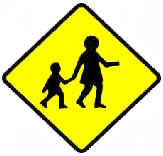
ALL FREE READING RESOURCES!!!!
(including links to other websites with FREE reading resources)
And, especially for...
ESL
| |

English |
|

Spanish
|

Korean |

Mongolian |

Chinese |
|
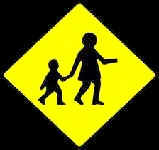
Parents of
Homeschool
|
|

Halloween
|
|

Thanksgiving
|
|
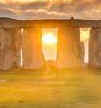
Winter Solstice
|
|

Christmas
|
|
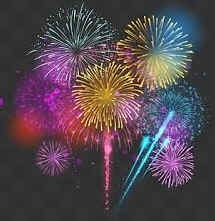
New Years
|
|
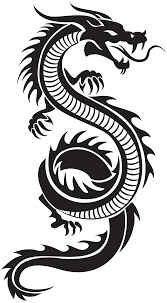
Chinese Lunar
New Year
|
|
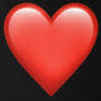
Valentine's
|
|

|
|
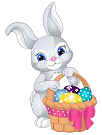
Easter
|
|

All About
Dr. Seuss
|
|
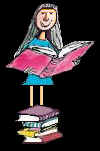
Roald Dahl
|
|
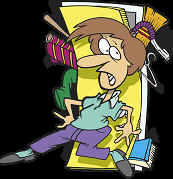
Prepper's
Pen |
|

Ways to
Help
Leon's Planet
|
|